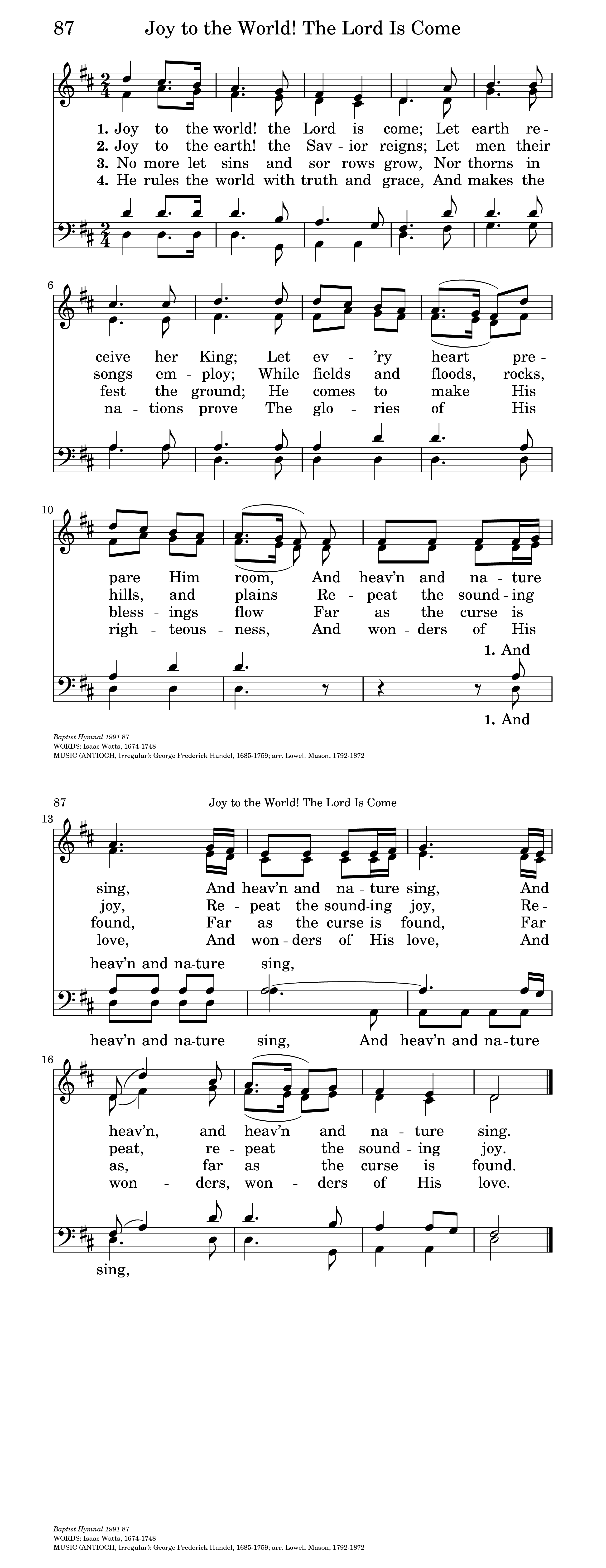Let Earth receive her King;
Let ev'ry Heart prepare him room,
And Heav'n and nature sing.
2. Joy to the Earth, the Savior reigns,
Let men their Songs employ,
While fields and floods, rocks, hills and plains,
Repeat the sounding joy.
3. No more let sins and sorrows grow,
Nor thorns infest the ground;
He comes to make his blessings flow
Far as the curse is found.
4. He rules the world with truth and grace,
And makes the nations prove
The glories of his righteousness,
And wonders of his love.
Isaac Watts' Vision:
Isaac Watts, often called the "Father of English Hymnody," wrote "Joy to the World" as part of his larger project to create hymns that expressed the core tenets of Christianity in a way that ordinary people could easily understand and sing. At the time, hymns were often difficult to understand and were written in more formal language, mostly based on the Psalms or scripture. Watts wanted to make them more accessible and emotionally expressive, and "Joy to the World" is a perfect example of his approach.
The Lyrics:
Watts' version of Psalm 98 was written with themes of joy, triumph, and hope, celebrating the coming of God's kingdom. In the hymn, Watts envisioned Christ's second coming as a time of universal joy, where nature itself would rejoice and all creation would acknowledge God's reign. The opening line, "Joy to the world, the Lord is come," encapsulates this sense of celebration.
While Watts’ lyrics are rooted in scripture, they are not a direct translation of Psalm 98. Rather, they evoke the themes of Christ’s kingship and future return, with imagery of peace, justice, and rejoicing. The hymn also speaks to the joy and salvation that Christ brings to the world, and it has been interpreted as a hopeful, uplifting song both for Christmas and for the anticipation of Christ’s final return.
The Music:
Although Watts wrote the lyrics in 1719, it was not until 1839 that the hymn gained its most famous musical arrangement. Lowell Mason, an American composer, took the words of Watts and set them to a melody based on themes from Handel’s Messiah. This melody became the familiar tune we know today.
Mason’s arrangement of the hymn, coupled with Watts' expressive lyrics, helped cement "Joy to the World" as one of the most enduring Christmas carols in history. It is often sung during Christmas services but also has a broader theological message that has made it popular throughout the year.



No comments:
Post a Comment